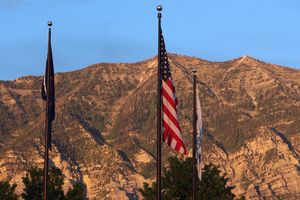
Use of excessive force by police (full)
23 June 2020
Many Americans, especially those who are white, are beginning to realize that their own interactions with the police may not be the same as what black Americans often experience. Now that there is a video camera in everyone’s pocket, we are seeing videos that confirm what black Americans have been saying about being disrespected, mistreated, or even killed for no good reason at the hands of the police. This must stop. The fact that this misbehavior represents the actions of a minority of police officers does not absolve us from taking action to prevent it.
Some say that we must either “support the police” or condone rioting and looting. This is a false choice. When said this way, “support the police” really means, “refrain from criticizing the police, no matter what they do.”
It is important to support the police, not by approving everything they do, good or bad, but by:
- providing them the standards, training, policies, and oversight that will make them successful,
- insisting that police departments have a “guardian” culture rather than a “warrior” culture,
- refusing to tolerate a culture of silence in police departments,
- and ensuring that there is civilian oversight of departments, in much the same way that the military is under civilian control at the national level.
Standards are important because they can prevent the accidental use of excessive force. A good place to begin is by banning or severely restricting the use of chokeholds and “knee to the neck” restraints. Police departments should have use of force policies that are derived from carefully considered and vetted national models. When deadly force is used, the question that should be asked is, “Was it necessary?” rather than “Was it justified?”
Over the past few decades many police departments have instituted military-style training that teaches officers that they are under constant threat and must do whatever they need to do to protect themselves from hostile opponents. Police departments should be retrained and a new culture instilled in which the police see themselves as guardians of the community and not warriors in hostile territory. Of course, police officers must protect themselves as they protect the public, but a change in viewpoint can have a profound change in outcomes of ambiguous situations.
In some police departments, a culture of silence reigns, in which good officers feel compelled to overlook bad behavior by other officers. In that type of environment, good police officers feel that they must remain silent when they observe dangerous or illegal conduct on the part of other officers because the department will not back them up if they report such incidents. A pattern of bad behavior can never be kept secret forever. When it comes out (sometimes in the form of a graphic video), all police officers are tarred with the same brush, and the department loses the trust of the public it was established to serve.
In 2006, a black police officer in Buffalo, New York, intervened when her partner had a suspect in a chokehold and was in danger of killing him. Rather than being rewarded for saving a life, she was fired one year short of completing the twenty years of service required for a pension. Officers should never be punished for doing the right thing, especially when a life is saved. Changing this kind of culture will require sustained effort by cities, and will be uncomfortable at times, but that is the only way that the situation will improve.
Effective civilian oversight of departments, both by the city administration and by entities such as civilian review boards, will go a long way toward reducing the excessive use of force by police. Anyone, police officers included, performs better when he or she knows that they are being held accountable for their actions and that they are expected to meet a high but attainable standard.
Police officers are heroes. I define a hero to be someone who takes personal risks and is willing to sacrifice a lot, sometimes even his or her life, for the good of others. We must support the heroes, but at the same time, we cannot tolerate the excessive use of force in the name of protecting the community. Our support must take the form of praise, honor, and appreciation, but also the training and tools necessary to do the job the right way.
The time is overdue for significant change in policing in America. Unfortunately, there will be no quick fix. Progress will require sustained effort over a number of years. The result, however, will be greater confidence in the police by all citizens, safer communities, and greater appreciation of the police and their sacrifices.
Failure to act is not an option. In a democracy, voters get the government that they deserve. In the long term, voters are responsible for the actions of their government. As former president George W. Bush recently said, “Achieving justice for all is the duty of all.”
SEE ALSO